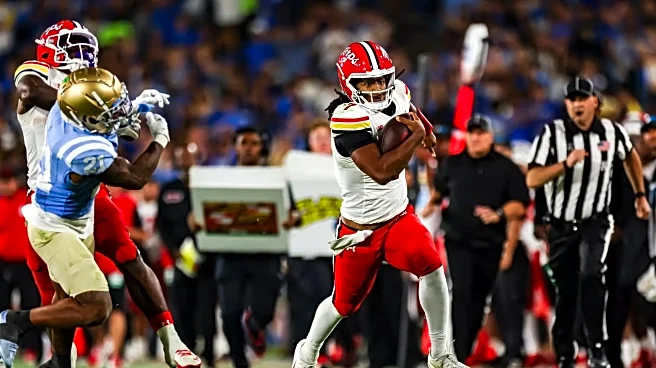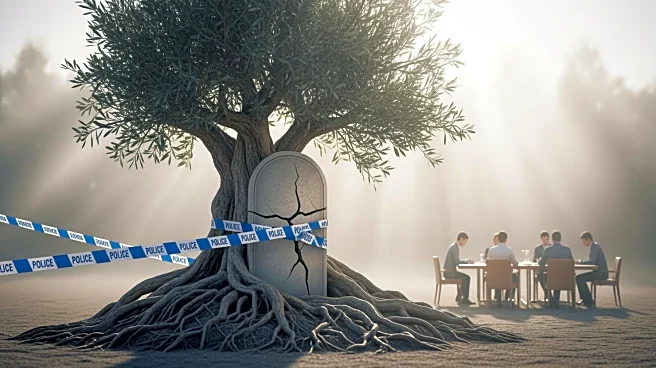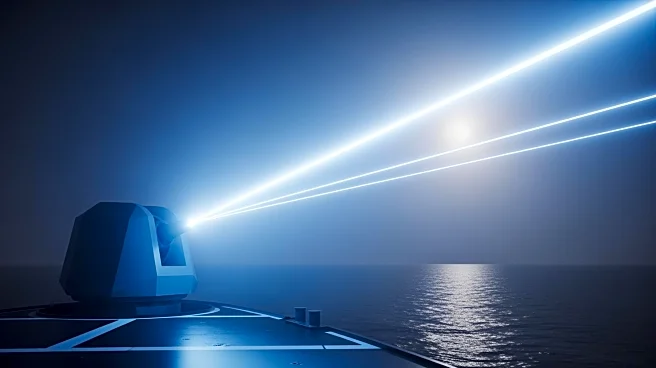PASADENA, Calif. — For a third-straight week, Maryland football needed a last-minute touchdown drive Saturday to avoid a loss; this time to UCLA. In the previous two tries, its offense couldn’t get it done.
Malik Washington wasn’t going to let that happen again. Multiple solid throws and a 28-yard scramble — by far the longest rush of the freshman’s season — set up a laser to Jalil Farooq for the offense’s first touchdown of the game and Farooq’s first of the season. The game was tied with 40 seconds left.
That score held for exactly 39 seconds. Quarterback Nico Iamaleava and running back Anthony Frias II led the Bruins straight down the field for a game-winning chip-shot field goal.
The Terps’ 20-17 loss to UCLA Saturday at Rose Bowl Stadium is their third in a row, dropping them to 4-3. What looked like a breakthrough season for the program three weeks ago is now a campaign in free fall.
The Terps’ defense was nothing short of spectacular for three-and-a-half quarters. Jamare Glasker’s third-quarter pick six gave Maryland its first lead of the game, and the unit around him made play after play to preserve that slim margin. Perhaps no play was bigger than Sidney Stewart’s fourth-quarter strip sack, giving the Terps the ball back.
It didn’t matter. Maryland’s offense failed to meet the moment repeatedly, mustering just three points in 59 minutes. Its defense, suffering from a multitude of in-game injuries, finally broke late in the final quarter. Nico Iamaleava’s touchdown pass to Mikey Matthews earned the Bruins a 14-10 lead.
UCLA had one scoring drive in the game’s first 54 minutes. It had three in the final six minutes.
Excluding the last drive, Malik Washington had his worst game as a Terp. He finished 23-of-48 for 210 yards, one touchdown and an interception. That interception came on the second play of the Terps’ first game-winning drive opportunity, following Matthews’ touchdown. It allowed the Bruins to expand their lead.
Any improvements Washington made as a runner — 67 rushing yards was more than double his previous season-high — were offset by his regression in accuracy. Countless throws to open receivers ended up as uncatchable balls.
It’s no secret Iamaleava’s running ability is a key part of UCLA’s offensive gameplan. Maryland came out focused on stopping it. Sidney Stewart was deployed as a quarterback spy on the Bruins’ first third down, mirroring Iamaleava’s lateral movement at the line of scrimmage. He helped Trey Reddick bring him down to force a punt on UCLA’s first drive.
But as slow as UCLA’s offense was early on, Maryland’s was slower. Just one of the Terps’ first four offensive drives resulted in a first down — the one that did was a 17-play, 88-yard drive that lasted over eight minutes and resulted in just a field goal.
The Bruins responded to it with the game’s first big strike. Running back Anthony Frias II burst through a hole on first down and outran Maryland’s defense for an easy 55-yard score. Frias had just 37 rushing yards on the season entering Saturday.
The Terps’ next first down came from DeJuan Williams, who dragged defenders for a 23-yard gain on fourth-and-1. It was only the team’s second run of at least 20 yards all season, and set Maryland up at UCLA’s 34-yard line.
Washington went back to Williams on a checkdown the very next play. Williams fumbled the ball and the Bruins recovered it, ending a promising drive.
It got even worse for the Terps’ offense in the second half. They only picked up three second-half first downs before their final drive, an abysmal mark given the situation Maryland found itself in. All three of those first downs came on chunk plays by Williams — two through the air and one on the ground.
One of those — a 41-yard wheel route down the right sideline — set up the Terps with first down and seven yards to go for a touchdown. Four plays later, their drive ended with no points.
That’s when Jamare Glasker reminded everyone offenses aren’t the only unit that can score touchdowns. He jumped a short throw from Nico Iamaleava and only needed to run eight yards to complete the pick-six.
That set up Maryland with its first lead. All it needed was one solid drive to extend the lead and solidify a win.
It never came. Once again, Maryland is left with substantially more questions than answers.
Three things to know
1. Depleted defense. Trey Reddick and Jalen Huskey were both ejected for targeting Saturday. Reddick’s came late in the second quarter and Huskey’s in the fourth. Huskey will miss the first half of Maryland’s next game.
La’khi Roland, Bryce Jenkins, Daniel Wingate and Dontay Joyner all suffered injuries late in the game, a big reason for UCLA’s late offensive surge. Joyner and Roland were able to return to the game.
2. Same old Maryland. What more is there to say?
Three straight losses. Three straight blown leads in the fourth quarter. Three straight performances marred by undisciplined play and penalties. And yet another season under head coach Michael Locksley that has fallen off a cliff when the month of October began.
Locksley said after the game the way to fix these issues is to figure out what the team can do to get better, not ask why it keeps happening. But the reason it keeps happening is because his teams have repeatedly, across his seven-season tenure, failed to figure out how to improve their shortcomings.
3. Must-watch TV for punting enthusiasts. It’s never a good thing for a team when its punter is its best performer. There’s a strong argument for that being the case for both Maryland and UCLA Saturday.
Bryce McFerson was spectacular. Eight punts tied his career high for a single game, and five of them landed inside the 20-yard line. One of those that didn’t was a 59-yard bomb from inside his own endzone. McFerson averaged 45.8 yards per attempt with a long of 61 yards.
A showing like that would make McFerson the clear best punter in most games he’s played. UCLA’s Will Karoll wouldn’t let that happen. The Australia native averaged 48.1 yards per punt on seven attempts, matching McFerson’s long of 61 yards.









